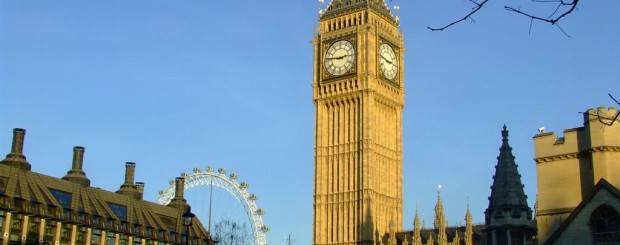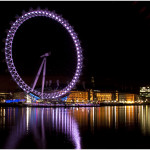How to Become a Permanent Resident in London
UK immigration rules can be complex and it is easy to become confused as to how you might become a permanent resident in the country. In addition, rules often change and information can quickly become out of date.
The guidance below was correct as of June 2014 and so incorporates the changes to immigration announced in July 2012.
Overview
Expats from the EEA are eligible for a Permanent Resident card after residing in the UK for five years. An application form can be downloaded from the UK government website and posted to the Home Office with a fee of £55.
For expats not from the EEA, you can apply for Indefinite Leave to Remain or Enter (ILR/ILE). ILR means you have achieved ‘settled status’ and will no longer be subject to immigration control when entering or leaving the United Kingdom. The time that needs to elapse before you can apply for ILR will depend on your current visa or residency status.
The relevant timeframes, since the 2012 changes are:
6 years – Expats granted DLR status (discretionary leave to remain)
5 years – For expats on a tier 1 or tier 2 work visa; investors; sole reps of a business; writers; composers; artists and spouses or unmarried partners of a settled person or British citizen who arrived in the UK on or after 9th July 2012.
4 years – For expats who were on the former Highly Skilled Migrant Programme (HSMP) as of 7th November 2006.
2 years – For spouses or unmarried partners of a settled person or British citizen who arrived in the UK before 9th July 2012.
Expats who have lawfully been resident in London for 10 years can also apply for ILR status, and even those who have been in the UK unlawfully may have the right to apply on the grounds of their right to a private life (Article 8 of the European Convention on Human Rights). The timeframe for applications on this basis are:
17 years – For children under the age of 18
19 to 22.5 years – For those between the ages of 18 and 25
30 years – For anyone who has been resident in the country for 20 years.
ILR/ILE can also be awarded for non-residents in the case of children, dependent relatives and victims of domestic violence. The Home Office has discretionary powers to award ILR status outside of the conditions above.
Since 2007, everyone who wants to settle in the UK is required to pass the Life in the UK’ test (with the exception of HSMP expats).
The Benefits of Settling in London
In addition to the psychological advantage of finally being accepted as a permanent resident of London, becoming a ‘settled person’ has tangible benefits.
Once an expat’s status has been changed from LTR (Limited Leave to Remain) to ILR, the words ‘no recourse to public funds’ will be removed from their visa and they will be eligible to apply for state support such as jobseekers allowance (a benefit paid to unemployed people looking to find work) and other public benefits.
Expats studying in London will be able to pay the home student rates rather than the international rates. It is also worth noting that government support for students does not come under the public funds restricted to expats, and even students on LTR status are able to apply for support (international students can find out more about studying in the UK on the UKCISA website).
Settled expats who decide to have children in London, will usually automatically confer British citizenship to their child, even if they are not married to the other parent.
To ensure their ILR is protected, expats are advised to never spend more than 2 years away from the UK and to apply for naturalisation/British citizenship as soon as possible (i.e. After 12 months).
The Application Process
Once the required time has elapsed, an application for ILR status can be made by post or in person to the Home Office Public Enquiry Office. Although applications in person are theoretically faster, using a Premium same-day visa service, in practise it is often easier to apply by post. Appointments at the Public Enquiry Office can take a long time to arrange.
Forms can be downloaded from the UK Government website and there is a step-by-step guide to ensure the right type of form is chosen. The most commonly downloaded are the Set (O) forms for expats on work visas and Set (M) for family members, although there are others for specific circumstances (e.g. Set [BUS], for sole business reps or retired expats, and Set [DV] for victims of domestic violence).
Becoming a British Citizen
The icing on the immigration cake is naturalisation, whereby an expat will become a fully-fledged British citizen. All expats on ILR status can apply for citizenship after 12 months, providing they:
- Are aged 18 or over
- Are of sound mind and good character
- Have been mostly resident in the UK during their qualifying period (or have been engaged in the service of the Crown or an international organisation of which the UK is a member, or working for a company with an association in the UK)
- Can speak an acceptable standard of English, Welsh or Scottish Gaelic
- Have a sound knowledge of life in the UK.
- Have not breached immigration rules
Acceptable residence is deemed to mean that the applicant has not spent more than 450 days outside of the UK in the last five years (or 270 days in the last three years for spouses and partners), nor more than 90 away in the last year.
Children are not automatically granted British citizenship when they are born, but since July 2006 it has no longer been necessary for a couple to get married to legitimise the birth and if one of the parents has ILR status, the child will usually be granted citizenship. In any case, children who have lived in the UK for ten years have the right to register as British citizens under the British Nationality Act.








